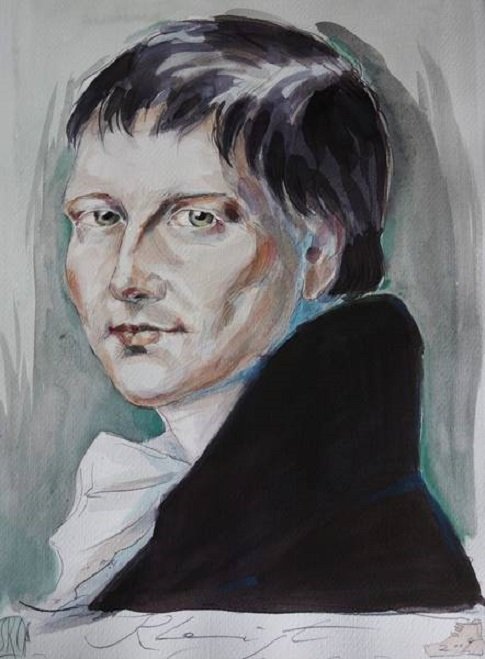For Prince von Humbourg, the law does not hijack an idea-for him, it is something quite real, and its obliviousness derives from subjective feeling, and this leads to arbitrary interference in the course of the battle. With his unbridled impetus, he undoubtedly contributes to the victory over the Swedes, but with his premature interference, he violates the sacred law of war and turns the previously thought-out plan into arbitrariness and play of the case. Dazzled by the splendor of victory and dreams of happiness, the prince is not at first able to understand the motives of the cursor when sentencing him to death. Instead of looking for the guilt in himself, he searches for it in the curfew ...
Only the curvy letter, which calls him to judge whether the death sentence is right or not, brings it back to his intelligent self. Putting himself in the role of a judge over himself - and this means antitrusting and triumphing the objectively valid law of war - he is taken out of the sphere of personal interest and the reaction of internal transformation begins there. Through the curator's letter, he rises to his state opinion. In the development of the German drama, Heinrich von Kleist marks a new stage in bringing about real problems and tragic social phenomena, without breaking completely with the romantic tendencies and the tendency towards a philosophical-mystical understanding of the concepts of love, interpersonal relations and the demand for the above-ground as a unifying link between the world of phenomena and the realm of ideas It is. The reworking of ancient myths, fabulous legends, and stories from the past of Germany enable him to further expand the propensity for complex interweaving of events and fates.
Literally and historically, he stays on the headline between classics and romanticism, without, however, succumbing to strict qualifications, because he imposes on all the print of his extraordinary personality - not always harmoniously reflected - and stands as an isolated phenomenon. Kleist as a novelist: In 1808, Kleist wrote the novel "Michael Colchas". From the very beginning, he presented the horse trader Kolhas as "one of the most just and at the same time the most terrible of his time," and all "would have glorified his memory if he had not exaggerated his virtue if the sense of justice he had made him a robber and killer. " Novelist Kleist traces in his narrative how zealous devotion to justice can turn man into a criminal. Saxon Junker Ventzel von Tronka blackmails the honest seer and horseman to wager a pair of horsemen if he wants to get a pass for free travel on the Brandenburgs. He behaves like a full-fledged lord in front of the merchant, making him an idle servant when he does not accept his back-down crannies. Kolhas filed a complaint with Saxony, but von Tronka took advantage of his superior patronage and the trader's appeal was rejected.

I like to have a historical atmosphere to get an article.
Downvoting a post can decrease pending rewards and make it less visible. Common reasons:
Submit
@godflesh Bravo man you always share mind bowing content.
Downvoting a post can decrease pending rewards and make it less visible. Common reasons:
Submit
You have recieved a free upvote from minnowpond, Send 0.1 -> 10 SBD with your post url as the memo to recieve an upvote from up to 100 accounts!
Downvoting a post can decrease pending rewards and make it less visible. Common reasons:
Submit